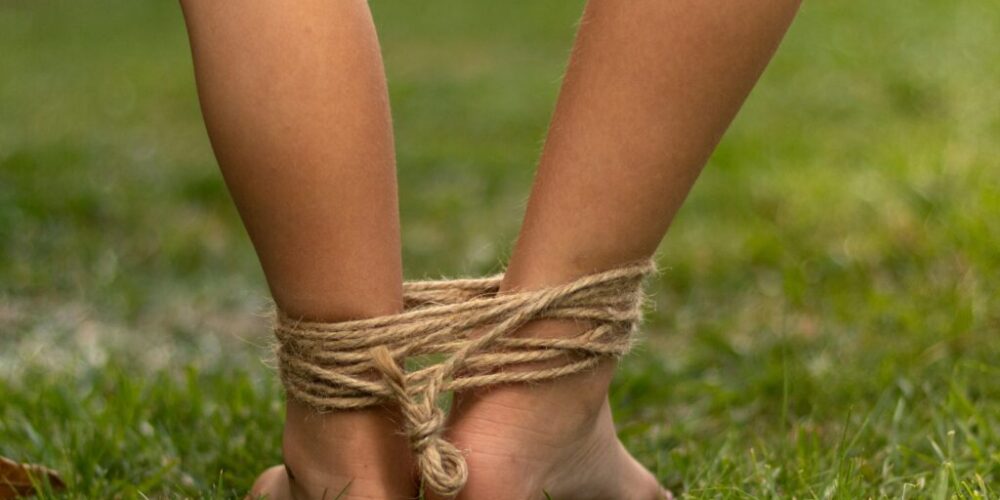What is co-dependency?
Put in a nutshell, it is an unhealthy way of relating, in which one person has extreme physical or emotional needs that they struggle to deal with, but they have a co-dependent partner who devotes most of their time trying to meet those needs, even at the detriment of themselves. Co-dependent relationships can spiral into a vicious cycle, in which the co-dependent partner cares for their loved ones so well that it makes it incredibly easy for the partner to continue displaying such challenging behaviours that they do not take responsibility for. Effectively they enable their partner to continue their unhealthy behaviour.
How to tell if you’re co-dependent.
If you’re in a relationship that you fear may be co-dependent, the first step to change is to stop looking at your partner and take a good hard look at yourself. Read the following statements. If you agree with most of them, that’s a good indication that you’re at risk of acting in a co-dependent way.
I tend to ignore or minimise my own feelings.
I do things that I don’t want to do to make my partner happy.
I will apologise or take the blame just to keep the peace or avoid a row.
I have an excessive need to get other people’s approval.
I am guilty of neglecting my own desires and needs.
I will change my mood to reflect how my partner feels or behaves.
I can have an excessive concern about my partner’s habits and behaviours.
When I do things for myself, I can end up feeling guilty or anxious.
My sense of self-worth and esteem largely depends on what my partner thinks of me.
I will lighten my partner’s load, even if that means I now have too much on my plate.
I tend to fall in love with people that I can pity and rescue.
I feel responsible for the actions of my loved ones.
I am afraid of being abandoned or alone.
I feel responsible for my partner’s happiness.
I am afraid of being abandoned or alone, but I find it hard to trust others.
How to beat co-dependency
The first thing you need to know is that co-dependency is a learned behaviour, which means it can be unlearned. Change is possible and co-dependent relationships can survive. But it takes work and determination, and no one can do it but you. When you first try to break the cycle of co-dependency, it can seem as if you are being encouraged to behave in a way that is selfish and unfair to your partner. In fact, this couldn’t be further from the truth. In a healthy relationship, both people have fully formed identities that are separate to each other. A degree of independence allows both partners to have something which they can bring the table. And it’s that which brings them together, it doesn’t drive them apart.
What does change look like? Well, try these suggestions below…
Be real with yourself and your partner. Doing stuff that you’re not into just wastes time and drains you. Plus, it breeds resentment. Saying things that you don’t mean just messes with your own head because you’re living a lie. So, shoot straight when you talk and let your partner know what you really need and want.
Cut out all the negative vibes in your life. Whenever you catch yourself spiralling into negative thinking stop it right there. If you start feeling like you deserve to be treated badly, flip the script. Stay positive and expect better.
Don’t take stuff personally. It’s tough for someone who’s co-dependent to not feel attacked when things get personal, especially in a close relationship and a marriage. Just take your partner as they are, without trying to change them or yourself.
Take some time for yourself. It’s totally cool to take a breather from your partner now and then. Having your own friends outside the relationship is very healthy. Hanging out with friends will help you reconnect with who you are.
Think about getting some counselling. Going to therapy together can be a real game-changer. Think of a counsellor as a neutral referee who can spot co-dependent habits that you might not even realise that you’re doing. Their feedback gives you a roadmap for change. Things won’t getting if we keep on doing the same old stuff.
Lean on friends who’ve been there before. Have you heard of Co-dependents Anonymous, sometimes known as CODA? It’s a support group for folks who are trying to break free from co-dependent patterns. It’s a lot like Alcoholics Anonymous, but for people who are co-dependent.
Set some boundaries. People with co-dependency often struggle with this. That can mean that it’s hard to know where your needs end and your partner’s needs begin. It’s easier said than done, but we’ve got to stop feeding off guilt and feeling guilty when we put ourselves first.
Practice saying no. You need to learn assertiveness, so get comfortable saying phrases such as “I’d rather not…” or “That isn’t acceptable…” or “I can’t do that…”

The link between co-dependency and addiction
Substance abuse affects relationships in lots of problematic ways. Those struggling with substance abuse tend to become dependent on their partners and their partners are at risk of enabling those addictive behaviours. It’s so common that you could think of co-dependency and addiction as two sides of the same coin.
Want to learn more?
If reading this has got you thinking and you want to understand a bit more, then you should turn to the experts. Top of that list is Melody Beatie. She’s written some great books: Codependent No More; The language of letting go; Journey to the heart. Check her out. This is the woman herself…



